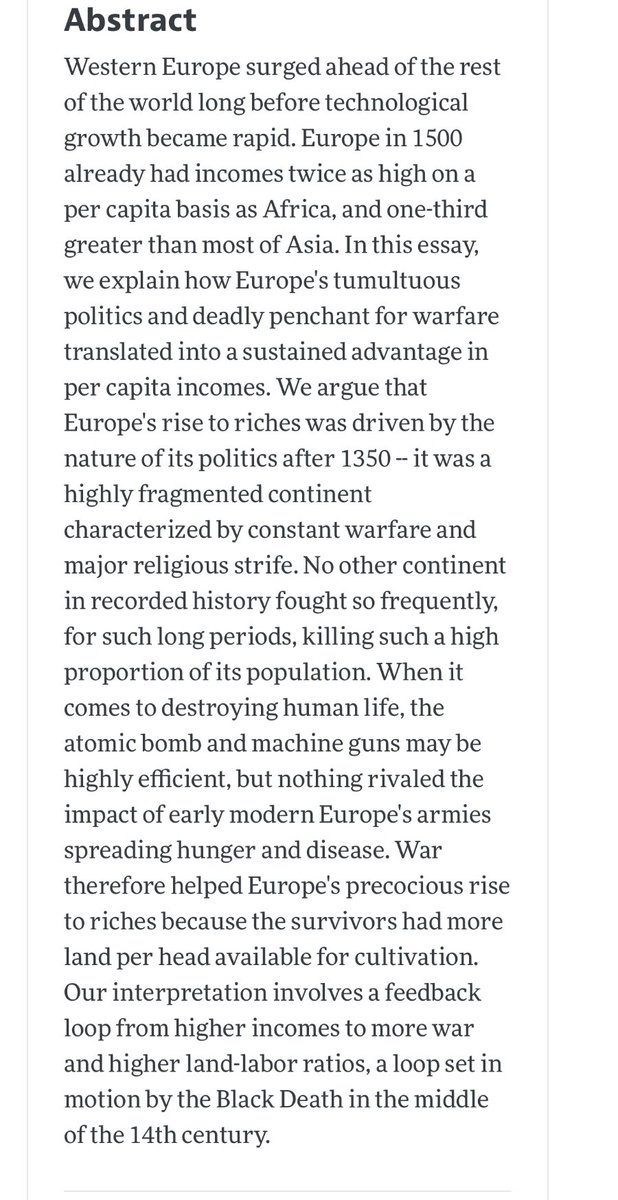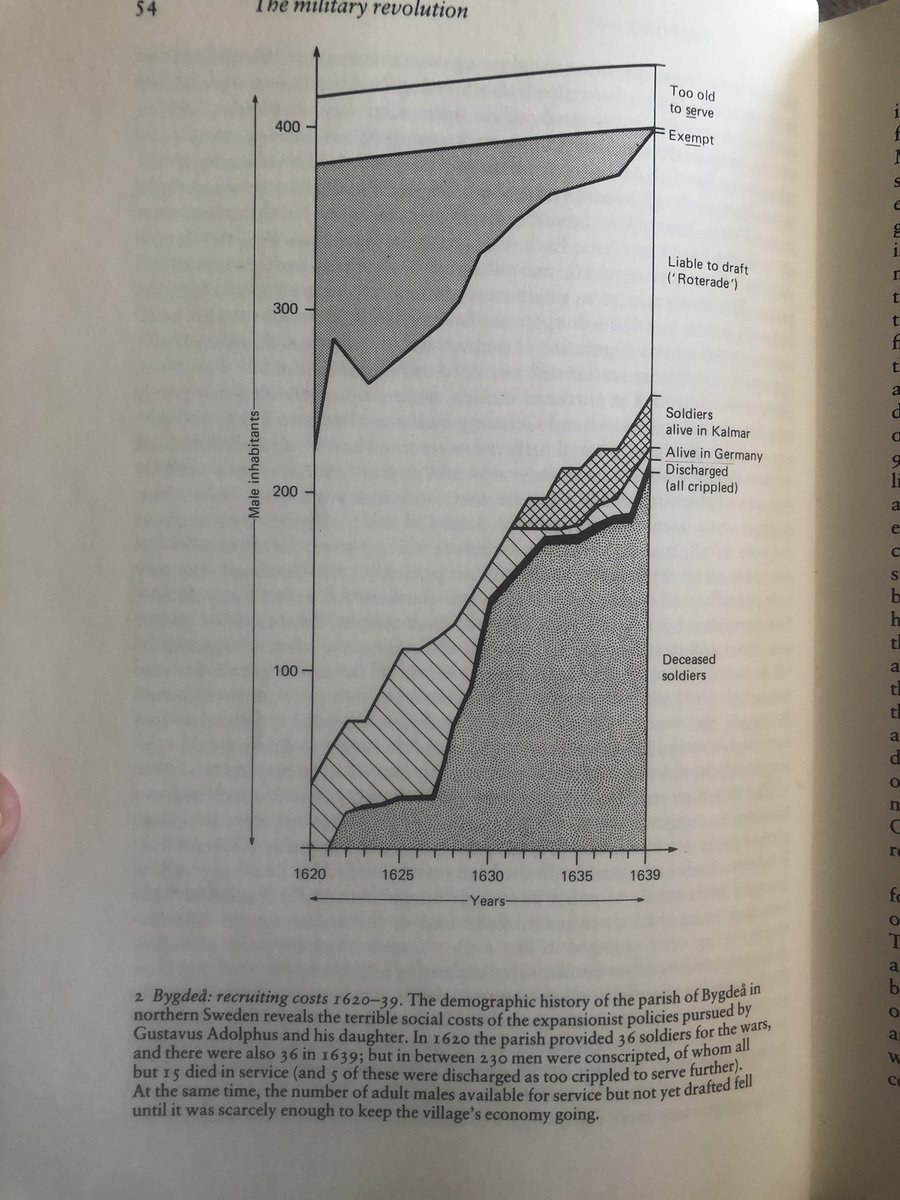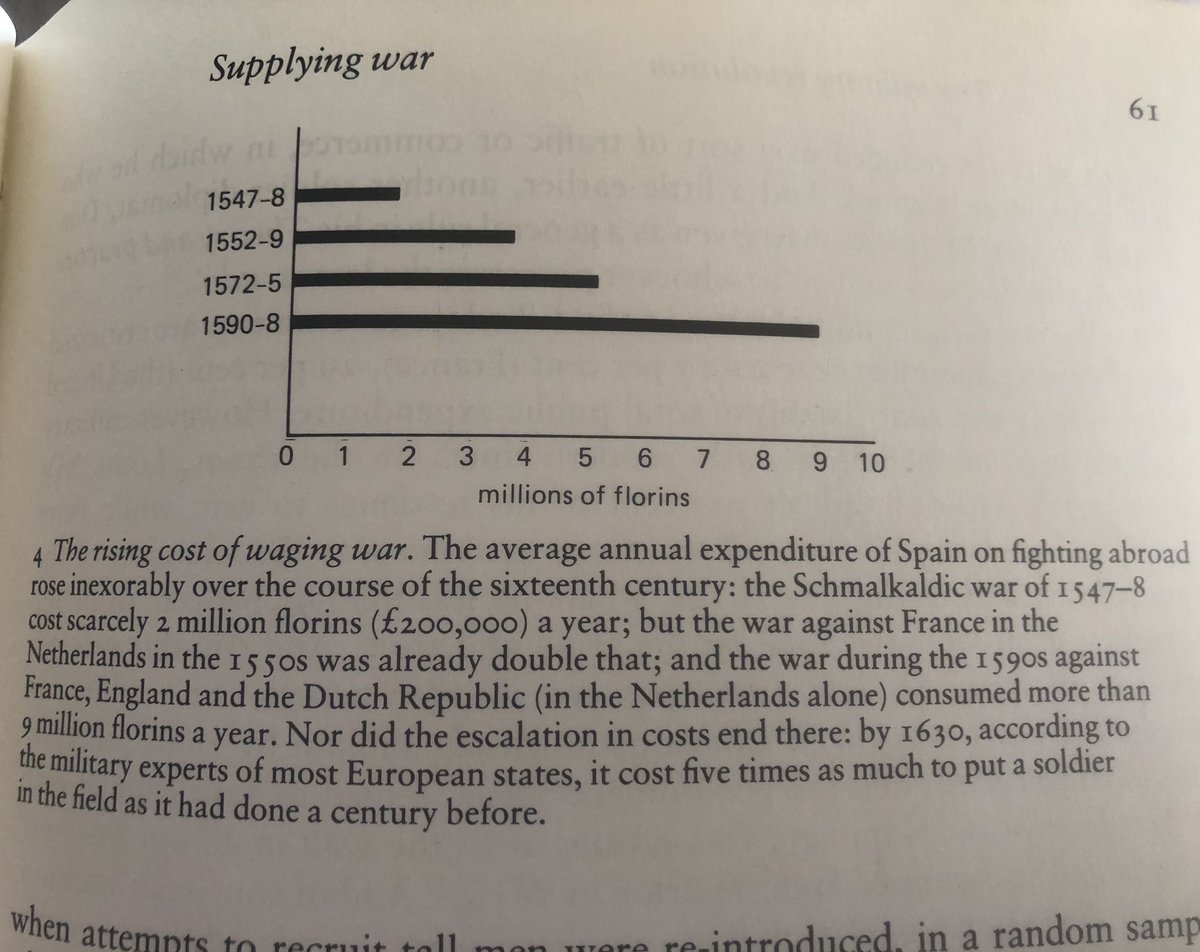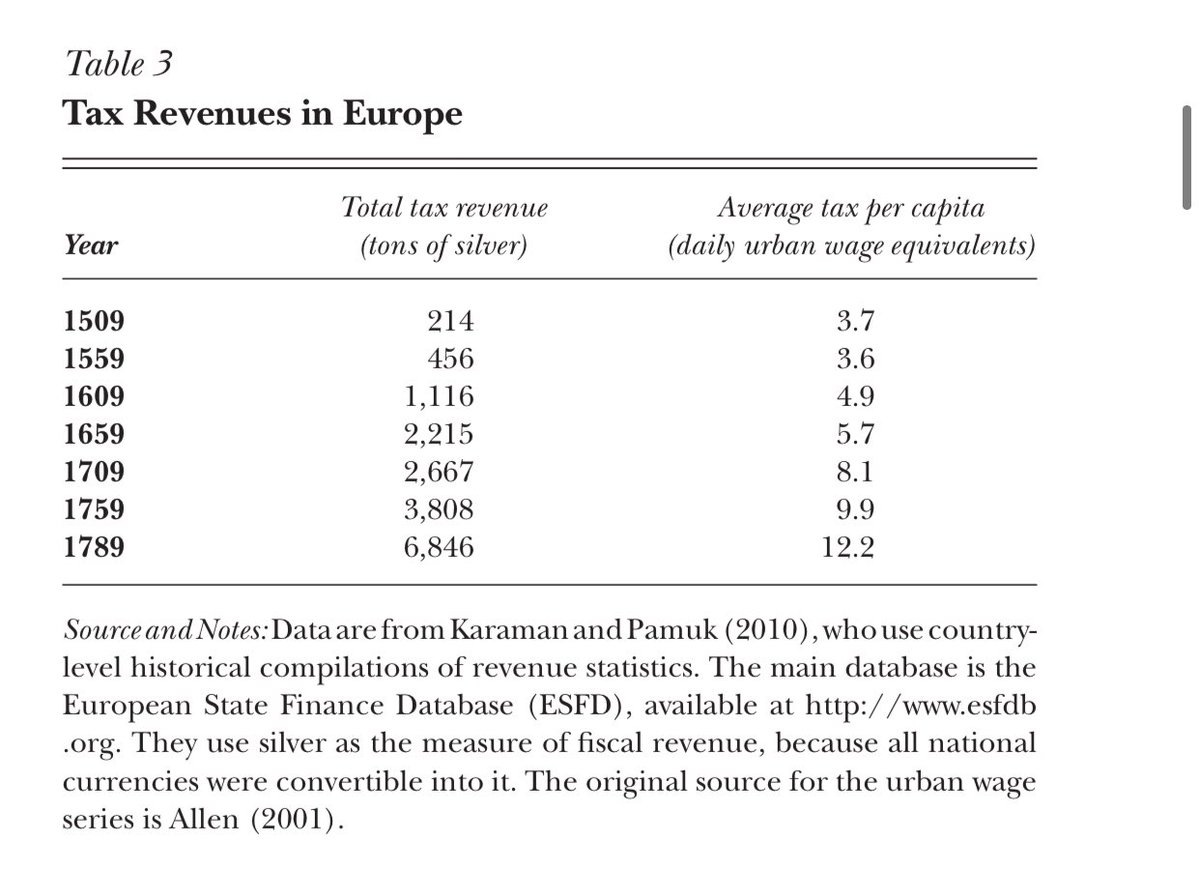Parker’s Military Revolution is a great read. Short and punchy (and with excellent pictures!) on European military innovation circa 1500-1800.
Reading it for the first time in almost 20 years has made me think about the economic implications of it all.
Reading it for the first time in almost 20 years has made me think about the economic implications of it all.
You can accept or dismiss Parker’s military revolution thesis. There’s an active and fascinating debate. And emphasis varies on technological vs tactical factors, sea vs land power, fortifications vs artillery. Etc.
But it is a simple fact that European armies (and navies)...
But it is a simple fact that European armies (and navies)...
... got *a lot* bigger between 1500 and 1800.
There’s an excellent economic history paper from Voigtländer & Voth on the role of warfare in explaining the divergence between Europe and China. It’s even available free online.
https://pubs.aeaweb.org/doi/pdfplus/10.1257/jep.27.4.165">https://pubs.aeaweb.org/doi/pdfpl...
There’s an excellent economic history paper from Voigtländer & Voth on the role of warfare in explaining the divergence between Europe and China. It’s even available free online.
https://pubs.aeaweb.org/doi/pdfplus/10.1257/jep.27.4.165">https://pubs.aeaweb.org/doi/pdfpl...
But their argument is firmly demographic and rooted in Malthus (and perhaps fair even given the wider economic dynamics?).
The prevalence of war in Europe (compared to unified China) killed a lot of people (and so did disease spread by moving armies). But...
The prevalence of war in Europe (compared to unified China) killed a lot of people (and so did disease spread by moving armies). But...
... it didn’t destroy much capital. The “gift of Mars” was that war raise the land to population and capital to population ratio in Europe and so boosted income per head.
An interesting argument. But how does it fit with Parker and the wider (military) history debate?
An interesting argument. But how does it fit with Parker and the wider (military) history debate?
Certainly, you find a lot of support for the demographic factors in Parker. The graphic below is an extreme example. But a telling one.
But what I find most striking is just how expensive war became, how quickly. New technology, more extensive fortifications, bigger shops and larger armies all cost a lot of money! (Again from Parker).
You can see it in the data in Gifts of Mars. Early modern states spent 70-80% of revenue on war and borrowed extensively to fund it too. The military revolution made war fighting more pricey and war fighting was *the* major thing states did.
What I think is more interesting than the argument “the European state system led to lots of war, which affected demographics in such a way as to drive GDP per capita up” is the “war became much more expensive and that led to a lot of innovation in state functioning”.
Back, basically, to Charles Tilly and the idea that wars make states.
Essentially the linkage, I think, is that war paved the way for the kind of institutional framework which drove the Great Divergence rather than it being a demographic story.
Essentially the linkage, I think, is that war paved the way for the kind of institutional framework which drove the Great Divergence rather than it being a demographic story.
But I’m just thinking out loud. And I’ll stop now.

 Read on Twitter
Read on Twitter





